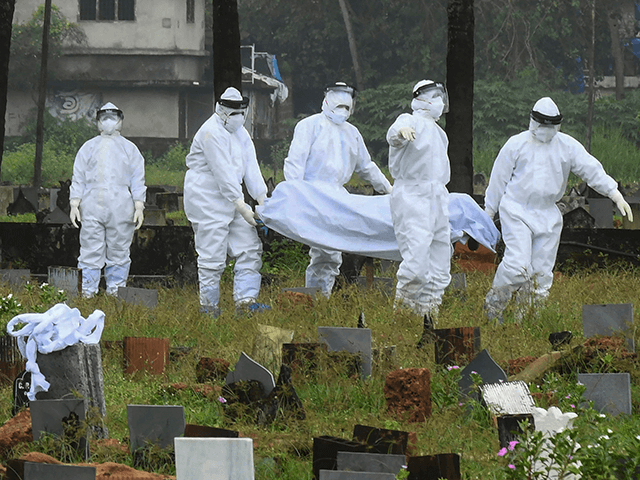Health authorities in southern India’s Kerala state said they were monitoring 68 people under quarantine at a state hospital on Wednesday for possible exposure to the Nipah virus — far deadlier than the Chinese coronavirus — after a 12-year-old Kerala boy died from Nipah on Sunday.
“A total of 68 people are under isolation in Government Medical College [Hospital], Kozhikode. All patients are stable,” Kerala Health Minister Veena George told reporters on September 8. Kozhikode is the second-largest city in Kerala, with a population of roughly four million.
Kerala’s health ministry conducted contact tracing to locate and quarantine the 68 individuals currently isolated at Government Medical College Hospital [MCH] after suspecting them of coming into contact with a 12-year-old boy who died of Nipah on September 5 at a private hospital in Kozhikode.
“[O]f the samples collected from people listed during contact tracing of the Nipah virus victim, 30 have tested negative so far,” Veena George told reporters on Wednesday, as quoted by India’s Asian News International (ANI).
Kerala’s health minister told Indian media on September 6 the victim’s parents, their close relatives, and dozens of medical workers who helped care for the 12-year-old boy before he succumbed to the Nipah virus were among the contract tracing subjects.
“The boy was taken to at least four healthcare institutions, including the MCH, Kozhikode, before being admitted to the private hospital where he died,” Veena George explained. “That is why a majority of the contacts are healthcare workers.”
“A total of 251 persons were listed during contact tracing,” ANI reported on September 8. “Of these, 129 were health workers and 54 were in the high-risk category. Of the total contacts identified, 11 were symptomatic. Of the 54 high-risk categories, 30 were health workers.”
The medical workers staffed four hospitals and one clinic in Kozhikode, including MCH.
India’s National Center for Disease Control dispatched a team of public health workers to Kozhikode on September 5 to “provide technical support to the state” hours after Kerala’s health ministry confirmed India’s first death from the Nipah virus this year.
A Nipah virus infection in humans “causes a range of clinical presentations, from asymptomatic infection (subclinical) to acute respiratory infection and fatal encephalitis [brain swelling],” according to the World Health Organization (W.H.O.).
Nipah may be transmitted to humans from animals, such as bats or pigs, or via contaminated foods, such as raw date palm sap. It may also be transmitted directly from human to human.
“Fruit bats of the Pteropodidae family are the natural host of Nipah virus,” the W.H.O. reported in 2018.
“There is no treatment or vaccine available [for Nipah] for either people or animals. The primary treatment for humans is supportive care,” according to the U.N. health body.
The Nipah virus has a fatality rate of up to 75 percent. The Chinese coronavirus, by comparison, has an estimated fatality rate of just 0.5 percent.

COMMENTS
Please let us know if you're having issues with commenting.